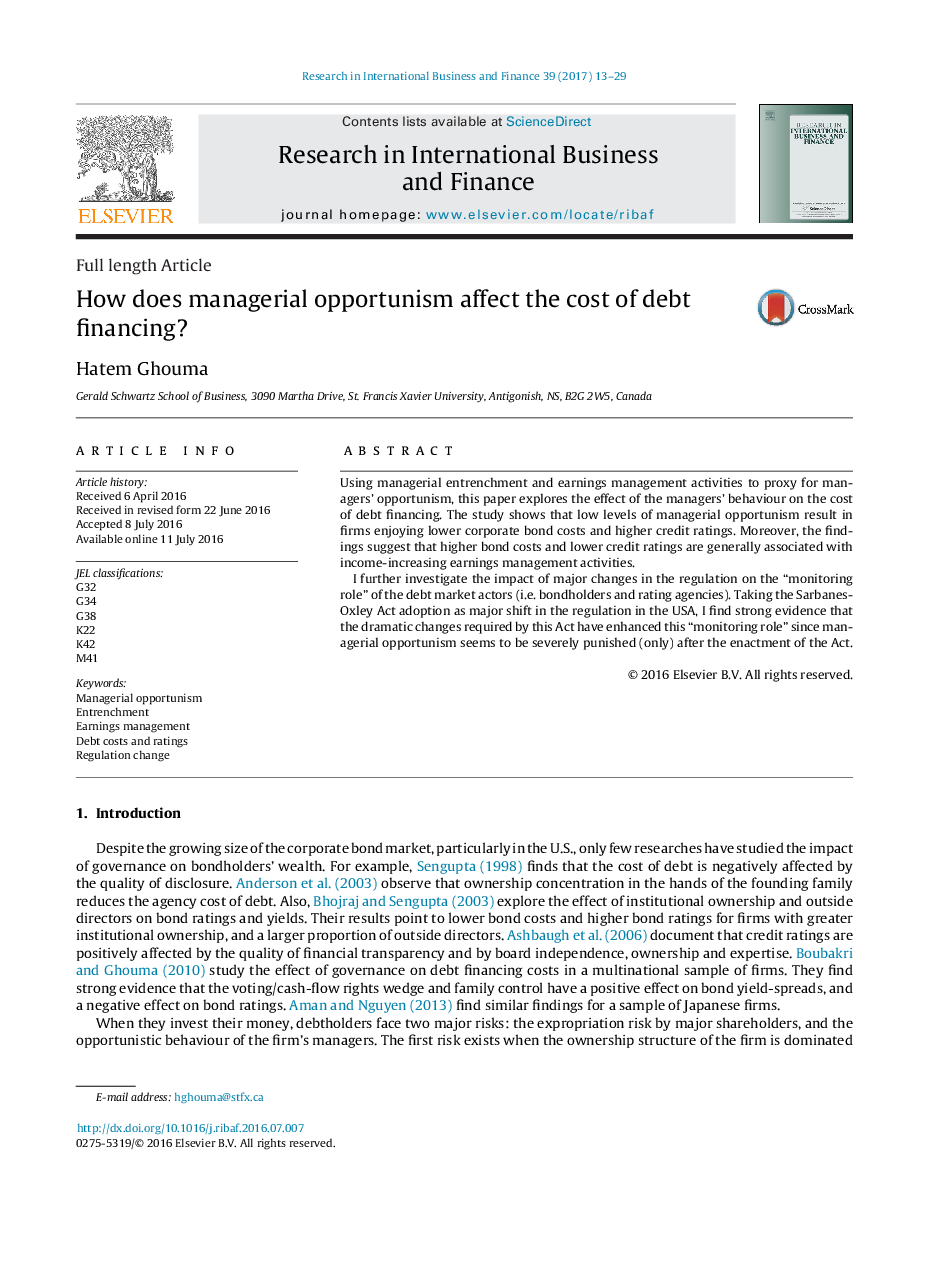| کد مقاله | کد نشریه | سال انتشار | مقاله انگلیسی | نسخه تمام متن |
|---|---|---|---|---|
| 1002865 | 1377580 | 2017 | 17 صفحه PDF | دانلود رایگان |
Using managerial entrenchment and earnings management activities to proxy for managers’ opportunism, this paper explores the effect of the managers’ behaviour on the cost of debt financing. The study shows that low levels of managerial opportunism result in firms enjoying lower corporate bond costs and higher credit ratings. Moreover, the findings suggest that higher bond costs and lower credit ratings are generally associated with income-increasing earnings management activities.I further investigate the impact of major changes in the regulation on the “monitoring role” of the debt market actors (i.e. bondholders and rating agencies). Taking the Sarbanes-Oxley Act adoption as major shift in the regulation in the USA, I find strong evidence that the dramatic changes required by this Act have enhanced this “monitoring role” since managerial opportunism seems to be severely punished (only) after the enactment of the Act.
Figure optionsDownload as PowerPoint slide
Journal: Research in International Business and Finance - Volume 39, Part A, January 2017, Pages 13–29
